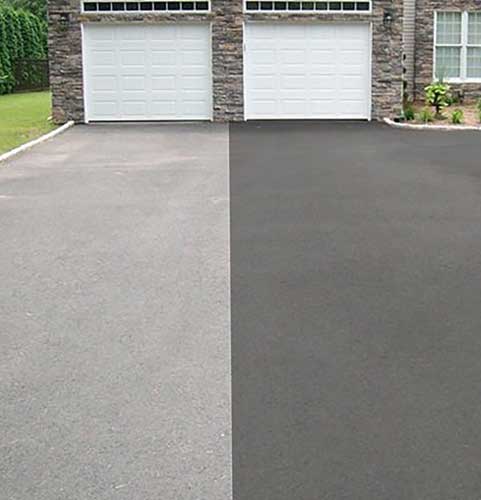Swift Solutions for Asphalt Patch Repair: Optimum Securing Methods
Swift Solutions for Asphalt Patch Repair: Optimum Securing Methods
Blog Article
Cold Mix Asphalt Vs. Hot Mix Asphalt: Which Is Right for You?

Composition Distinctions
Cold mix asphalt is generated by emulsifying the asphalt binder with water and an emulsifying representative before blending it with accumulation. The warm mix asphalt manufacturing process includes heating up the aggregate and asphalt binder individually before incorporating them at the asphalt plant.
In addition, cold mix asphalt tends to be much less thick and much more adaptable than warm mix asphalt. This versatility makes it far better matched for areas with greater degrees of movement, such as driveways or roadways with rush hour. On the other hand, hot mix asphalt is understood for its high toughness and resistance to rutting and splitting, making it a recommended choice for freeways and high-traffic roads where durability is critical.
Setup Refine Differences
The procedure of setting up cool mix and warm mix asphalt exhibits significant variations in their demands and procedures. In contrast, warm mix asphalt necessitates a much more sophisticated installation procedure. Due to the heating demands, hot mix asphalt setups are commonly lugged out by specialists with specialized tools, ensuring a much more structurally audio and long-term outcome.
Toughness and Durability Aspects
When considering asphalt choices, sturdiness and longevity are vital variables to evaluate for enduring sidewalk performance. Warm mix asphalt (HMA) is recognized for its extraordinary durability and durability.
In terms of longevity, HMA commonly surpasses CMA as a result of its exceptional toughness and resistance residential or commercial properties. HMA pavements have a longer life why not try this out span, needing less regular fixings and maintenance, which can translate to cost financial savings over time. Additionally, HMA pavements are much more quickly customizable to meet specific task demands, better boosting their longevity.
Expense Considerations
Considering the economic ramifications is an important element when reviewing the option between warm mix asphalt (HMA) and cool mix asphalt (CMA) for sidewalk tasks. While the initial expense of warm mix asphalt is typically greater than that of cold mix asphalt, HMA frequently gives a more affordable service in the lengthy run due to its exceptional resilience and longevity. HMA is known for its capability to withstand heavy traffic loads and harsh climate condition, decreasing the demand for regular fixings and upkeep. On the various other hand, cold mix asphalt is extra budget-friendly ahead of time however may need even more frequent patching and resurfacing, causing greater maintenance prices over time.
In enhancement to material expenses, it's crucial to take into consideration the costs connected with setup and maintenance when comparing HMA and CMA. Inevitably, the decision between HMA and CMA should take into account not just the initial price however also the long-term economic effects to establish the most cost-efficient option for the specific pavement project.
Environmental Influence Comparison
Comparison site here of the ecological effects in between hot mix asphalt (HMA) and chilly mix asphalt (CMA) exposes distinct distinctions in sustainability methods. HMA production calls for high temperature levels, leading to boosted energy usage and greenhouse gas emissions.
Additionally, the use of CMA often entails recycling existing asphalt pavement, advertising resource preservation and decreasing the quantity of waste sent to landfills. By deciding for CMA over HMA, road building and construction jobs can add positively to ecological conservation initiatives.
Final Thought
In verdict, the choice between cool mix asphalt (CMA) and hot mix asphalt (HMA) depends upon numerous elements such as make-up, installation process, longevity, longevity, expense, and useful content ecological impact. asphalt patch repair. While CMA offers a cost-effective and quick service for small fixings, HMA makes sure superior durability and durability for hefty website traffic areas. Think about these aspects meticulously to determine which sort of asphalt is the ideal option for your paving requires

Taking into consideration the monetary ramifications is an important aspect when examining the option in between hot mix asphalt (HMA) and chilly mix asphalt (CMA) for sidewalk projects. While the preliminary price of warm mix asphalt is usually greater than that of cold mix asphalt, HMA typically gives a more affordable option in the lengthy run due to its superior sturdiness and long life. cold mix asphalt.Comparison of the ecological influences in between warm mix asphalt (HMA) and chilly mix asphalt (CMA) discloses distinctive differences in sustainability practices.In final thought, the option in between chilly mix asphalt (CMA) and warm mix asphalt (HMA) depends on numerous variables such as composition, installation process, sturdiness, durability, expense, and ecological effect
Report this page